Did you find this article helpful for what you want to achieve, learn, or to expand your possibilities? Share your feelings with our editorial team.


Apr 5, 2024
VISION & IDEAGo for Sustainable Food Supply Chain
DENSO's Smart Food Supply Chain Platform Supporting the Future of Food
In today's world, we enjoy a lifestyle of accessing a wide variety of ingredients from all over the globe, eating whatever we want whenever we want, and choosing between cooking at home, dining out, or ordering delivery. We live in an era where individual dietary needs and desires can be met with unprecedented ease.
The collaboration of producers, transporters, wholesalers, and retailers supports this rich food environment. The supply chain of perishable goods is a complex and tightly coordinated process. Producers harvest the goods before dawn, while transporters work around the clock to deliver them to wholesale markets. Auctions are held during the dead of night, and the products are displayed in retail stores before they open. However, this food supply chain system is beginning to feel the strain of rising material and logistics costs, as well as labor shortages, raising concerns that we may not be able to maintain a safe and secure food supply in the future as we do today.
DENSO is developing a smart food supply chain platform as a solution to ensure a stable supply of food by optimizing food supply chain and transitioning to a sustainable one. This platform also aims to make information transparent and guarantee safety and security for consumers.
Contents of this article
The Demand for Safe, Secure, and Sustainable Food Supply Chain
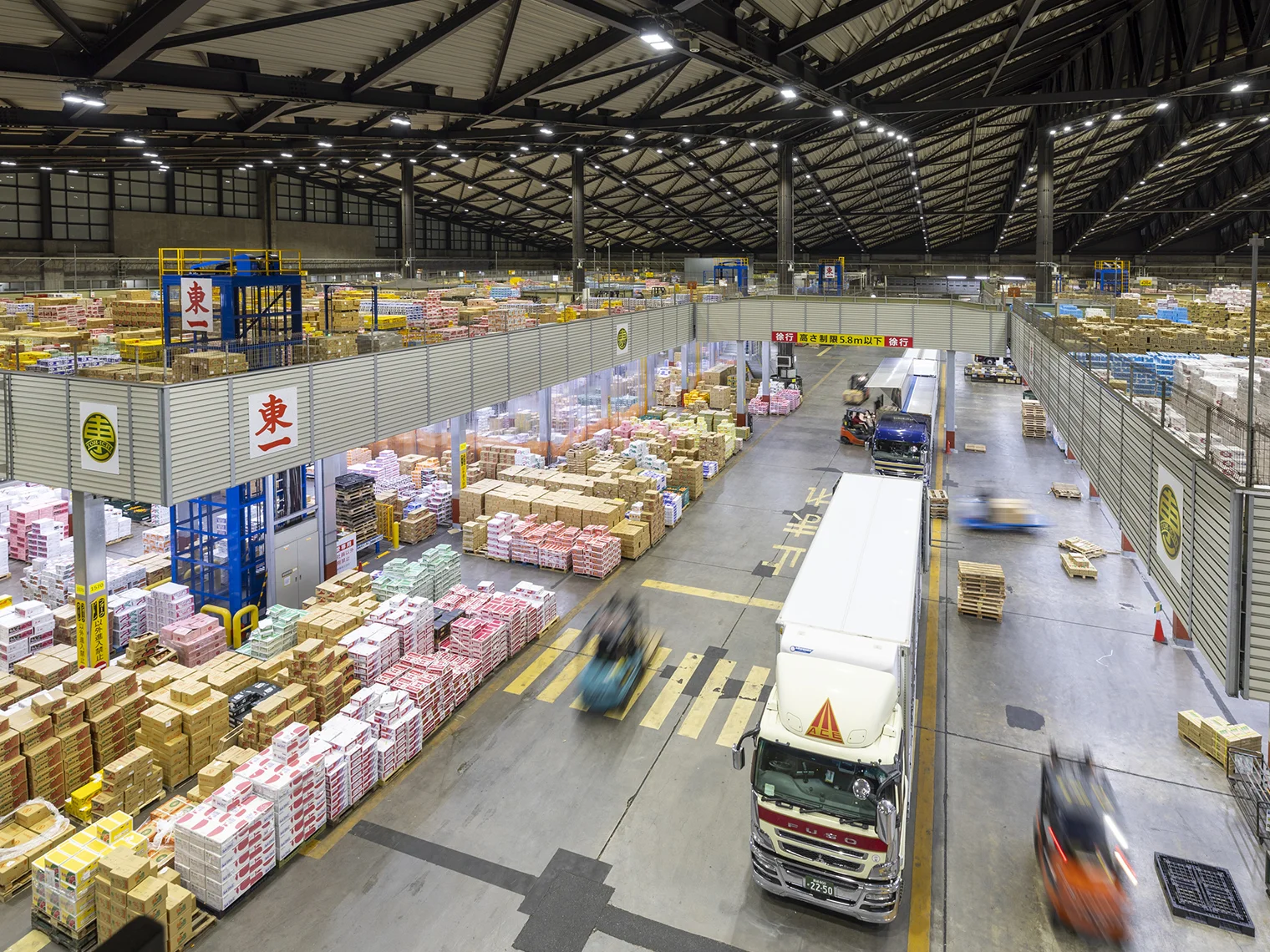
When we think about enriching the future of food, a crucial element becomes the field of the food supply chain that connects producers to consumers. A challenge within it is the management by a diverse set of stakeholders, including producers, wholesalers, and transporters, making it difficult to track information on the supply chain throughout its process continuously.
For instance, even if a product’s origin is falsified, pinpointing where in the process it occurred is challenging. Consumers often have no choice but to trust the information provided on labels on packaging. Therefore, accurately tracking and communicating information about the origin of products and additives is essential for ensuring consumer confidence and safety in their dietary choices.
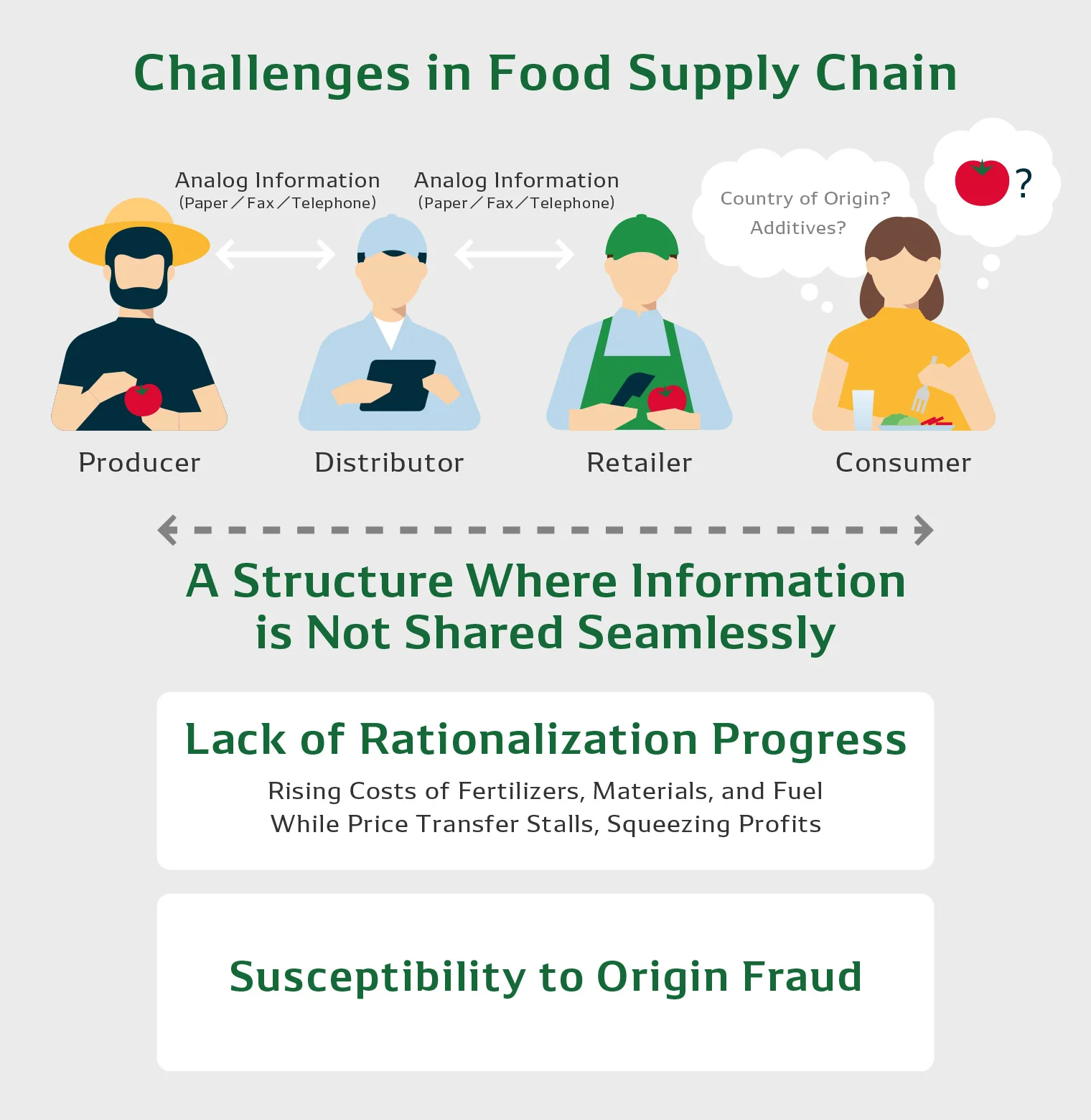
Additionally, the logistics industry faces the "2024 problem," with concerns over sta The reliance on analog methods of communication, such as paper, phone, and fax, leads to increased chances of communication errors and administrative burdens, deepening the labor shortage crisis and presenting a significant societal challenge.gnation due to stricter regulations on overtime work for truck drivers. These regulations aim to improve the harsh working conditions in logistics but may exacerbate labor shortages. The food supply chain field, in particular, is characterized by longer driving hours for truck drivers and the frequent need for manual loading and unloading, making it more prone to labor shortages. The reliance on analog methods of communication, such as paper, phone, and fax, leads to increased chances of communication errors and administrative burdens, deepening the labor shortage crisis and presenting a significant societal challenge.
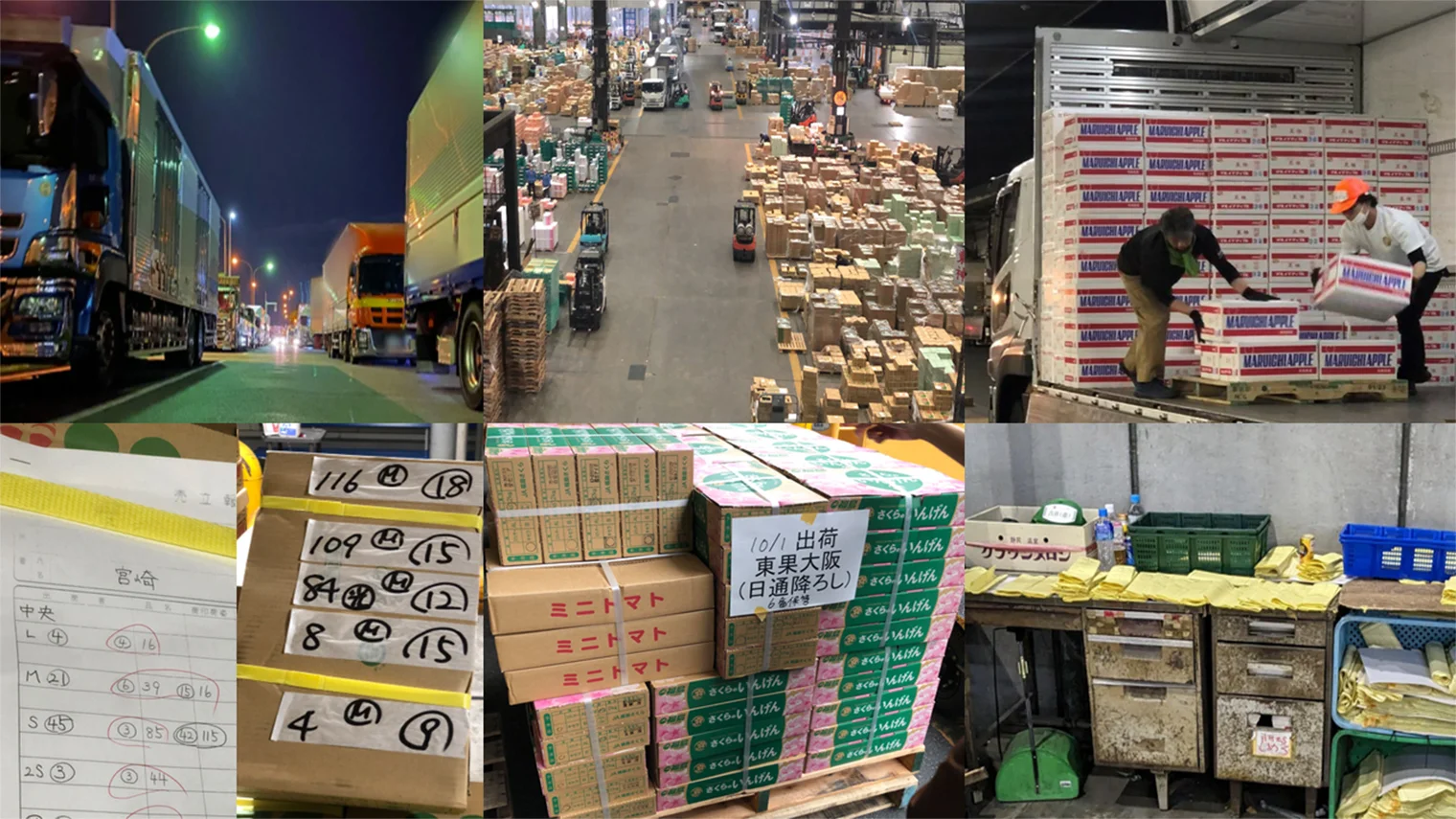
Addressing these societal issues requires the elimination of unreasonableness, waste, and inconsistency in supply chain processes and improving systems that reduce the burden on involved individuals and function efficiently even with fewer people.
The food supply chain, indispensable to our lives, must ensure the safety and security of everyone involved—from producers to wholesalers to consumers—to carry forward its abundance into the future. Moreover, this system must be sustainable.
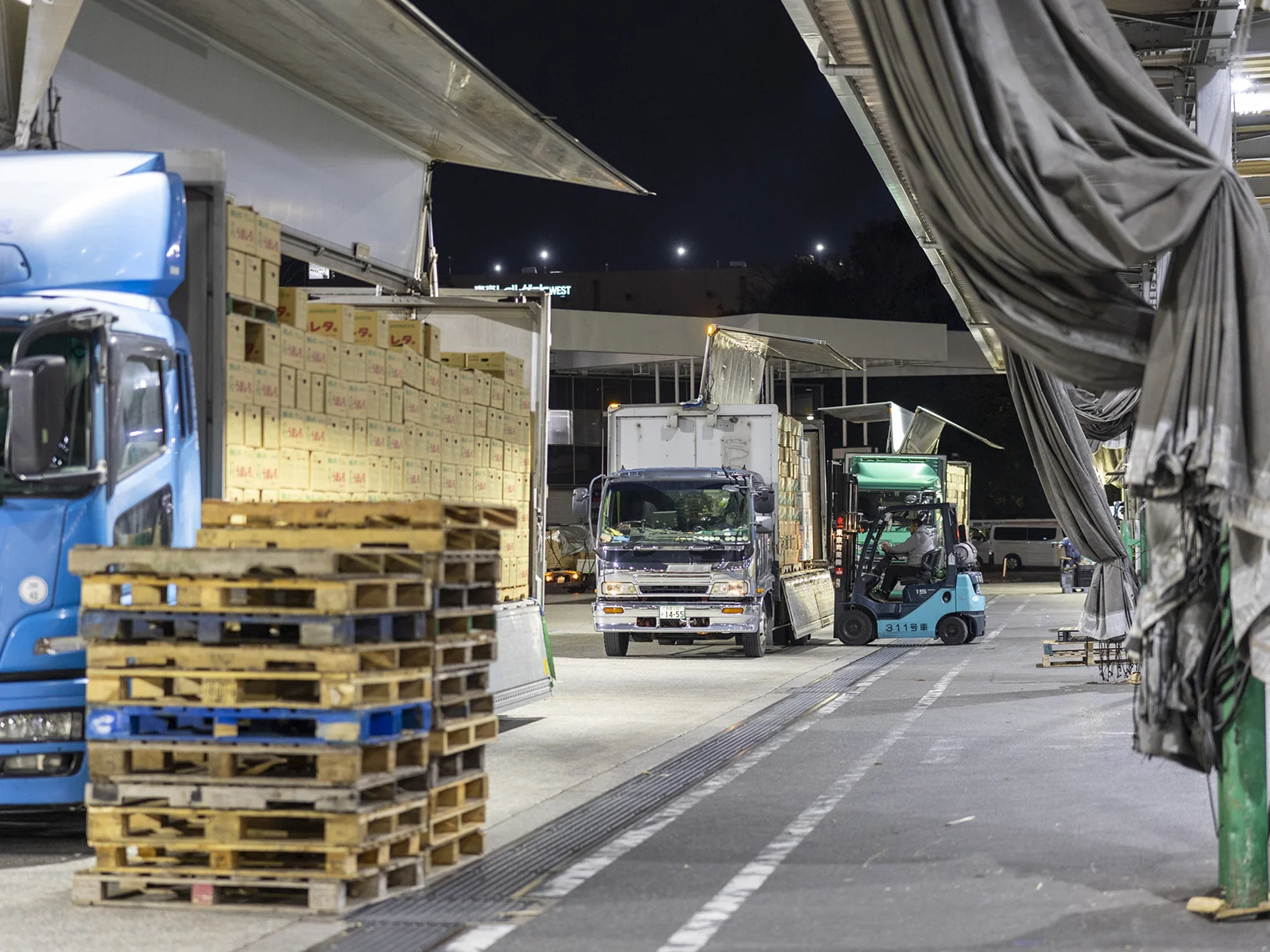
Centralizing Dispersed Data to Connect the Entire Supply Chain
To address these challenges, DENSO has developed the Smart Food Supply Chain Platform. By connecting information from upstream (producers) to downstream (consumers) in the food supply chain, the platform aims to enhance food traceability, ensure consumer safety and peace of mind, improve operational efficiency for distributors, and optimize logistics.
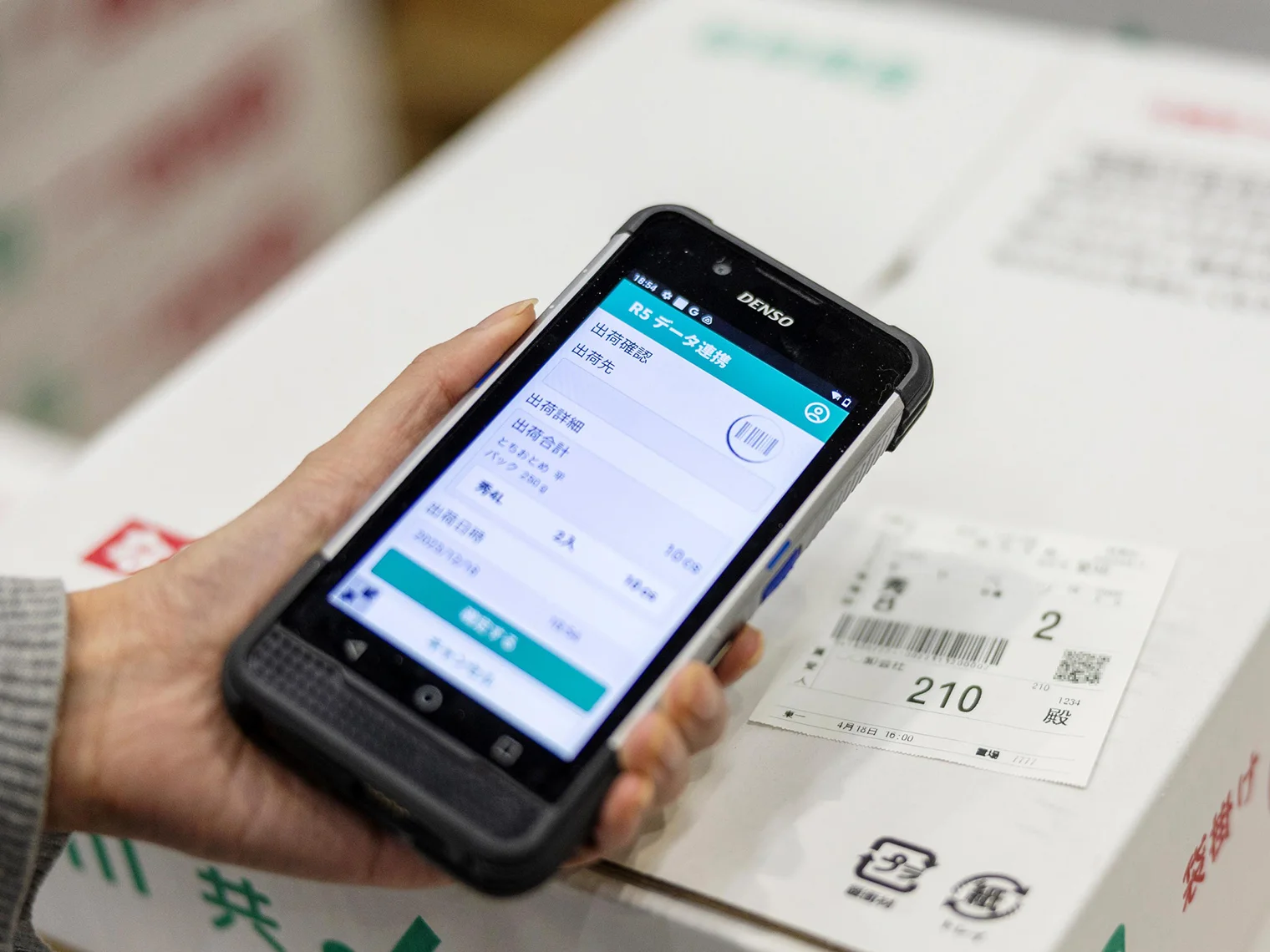
The Smart Food Supply Chain Platform's goal is to centralize data scattered across the food supply chain in the cloud, enabling the sharing and utilization of information among all participants. Individual businesses traditionally manage information related to products, logistics, inventory, materials, provenance, and supply and demand, with little to no sharing or utilization across the entire supply chain. This has led to challenges such as difficulties in communication between businesses and the inefficiency of having to rewrite the same information by hand multiple times.
In response to this situation, DENSO has developed a system that uses QR codes for central management of the supply chain information in the cloud, enabling its use across different businesses. It allows each business secure access to necessary information whenever they need it.
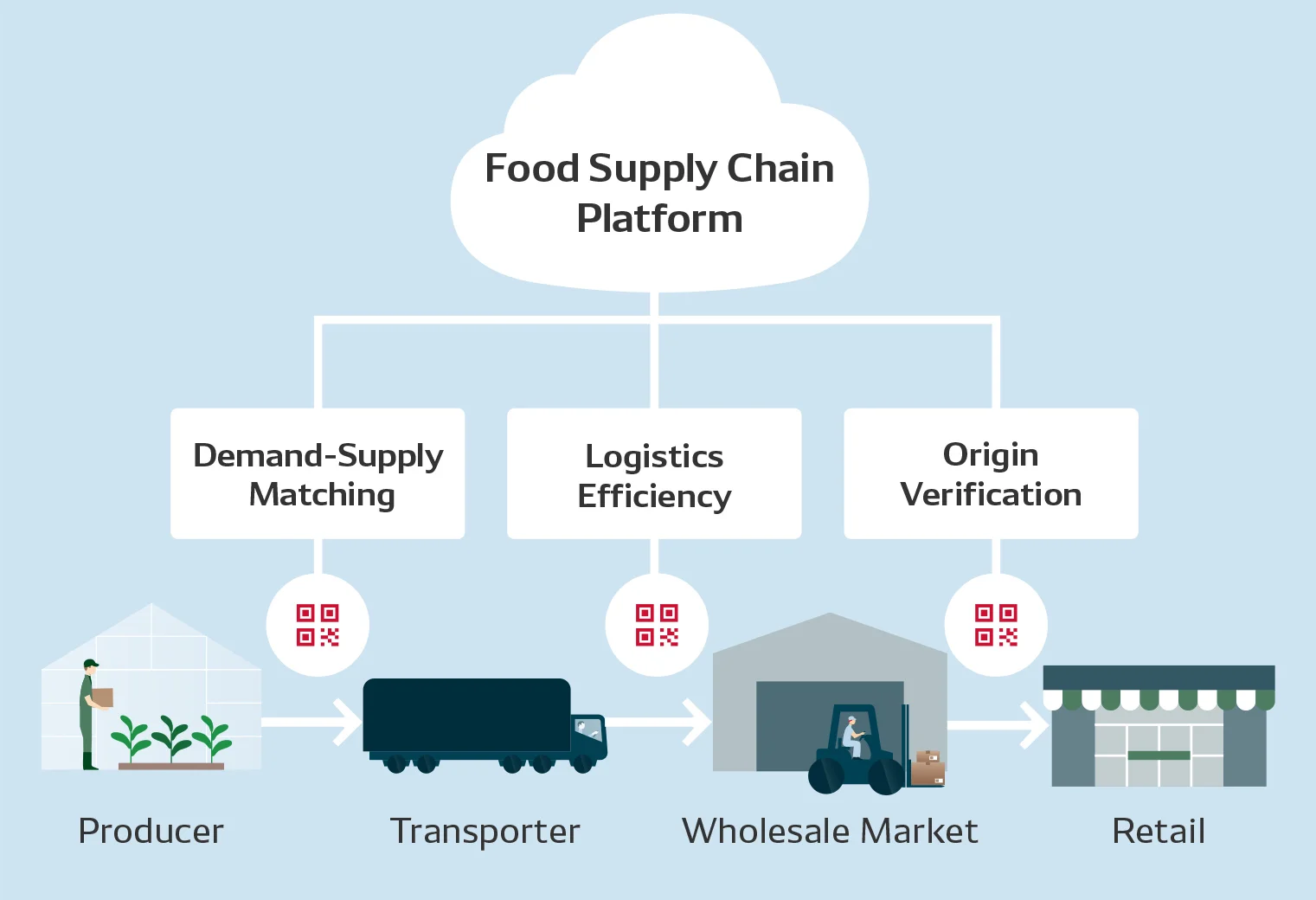
For instance, by utilizing QR codes affixed to products at the point of production, wholesale markets, and retail stores can effortlessly manage freshness, inventory, and payments. This system also enables the provision of traceability information to consumers and contributes to the reduction of food loss through matching supply and demand.
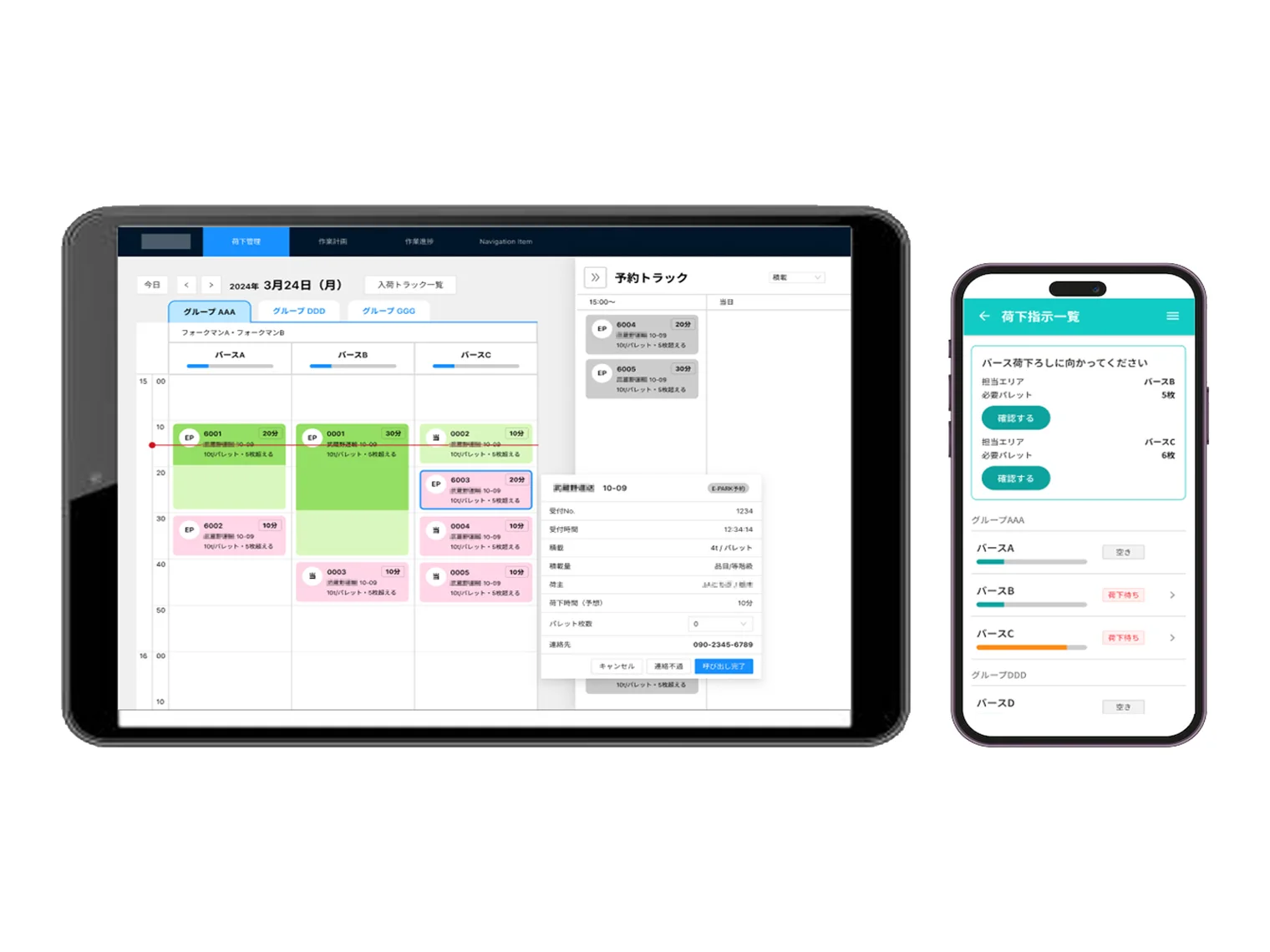
Enriching the Future of Food with Industrial Know-How Cultivated in the Automotive Field
Explaining the journey leading to the development of this Smart Food Supply Chain Platform, Tomohiro Okumura of the FVC Business Development Division says, "This concept was born from DENSO's commitment to leveraging the technology we developed in automotives as our core to contribute to various fields."
"As we talked to people involved in the food sector through DENSO's business, we became aware of various issues in the food supply chain, such as long working hours, food loss, and origin fraud. At the same time, we felt that by utilizing the technology and know-how DENSO has cultivated in the automotive field, as well as the improvements made in factories, we could address these issues. This led us to embark on the development of this system." (Okumura)
DENSO has been committed to contributing to society in the food sector by applying technologies and know-how developed in the automotive field, such as autonomous driving, information and communication technology, and cold chain management, as well as the Toyota Production System (TPS)-based Kaizen (a method for improving work efficiency and safety in manufacturing sites) and the Just-In-Time (JIT) production method, which aims to eliminate unreasonableness, waste, and inconsistency.
For example, in 2015 we leveraged automotive air conditioning systems and engine control technology to develop the Profarm Controller, an environmental control device for agricultural greenhouses, and a large-scale smart farm, developed in partnership with Certhon, a Dutch horticultural company. Furthermore, in 2018, we began selling the D-mobico®, a compact mobile freezer designed to establish a cold chain in the last mile.
- Related Articles:An ideal future for farming through the fusion of manufacturing and agriculture
- Related Articles:Innovations in Cold Chain Technology that Enhances Diverse Life Experiences
Collaborating with a variety of businesses involved in food through the development of this series of services, what became clear was the "necessity to create a system that supports the future of food supply chain.", according to Okumura.
The Key to Development Lies in Immersing in the Industry to Understand the Essence of Challenges
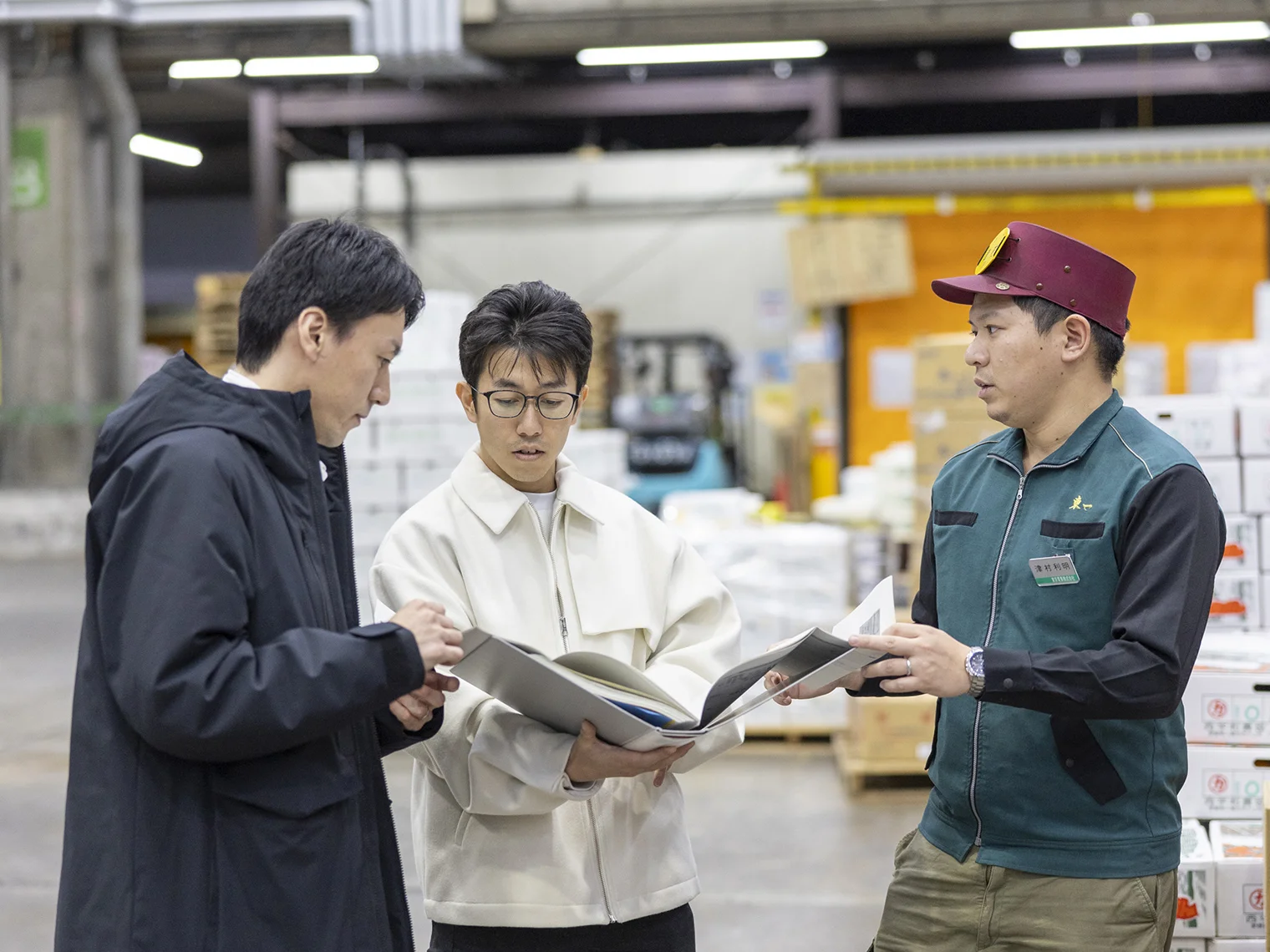
Regarding the use of QR codes in this system, Yoshiyuki Adachi of the FVC Business Development Division says, "This solution was reached through extensive on-site research."
"Our team is always conscious of listening to the voices of people in the industry and understanding the essence of the challenges firsthand. Changing the familiar conventional workflow for them requires significant effort. That's why, to succeed in smartification, it was crucial to identify what the real issues were, find the essence of these challenges and their solutions, and make people feel that this system could significantly change the industry." (Adachi)
To understand the essence of the challenges firsthand, DENSO's development team delved into Japan's largest fruit and vegetable wholesale market, the Ota Market, which spans the size of 8.5 Tokyo Domes. In collaboration with Tokyo Seika Co., Ltd., the largest fruit and vegetable wholesaler in Japan that collects produce from various origins for the Ota Market, the team conducted detailed observations within the market and interviews with on-site staff. Over six months, they created a Value Stream Map (VSM) of the flow of goods and information within the market to analyze operations thoroughly and identify the challenges and weaknesses within the wholesale market.
"Because this area had never been thoroughly understood or addressed before, creating the VSM was incredibly challenging. However, by persistently visiting the site, even staying overnight at the wholesale market for a month, and communicating with the people on-site, sometimes until late at night, we were able to grasp the essence of the challenges. I believe that dissecting and visualizing the wholesale market to this extent is almost unprecedented worldwide." (Adachi)
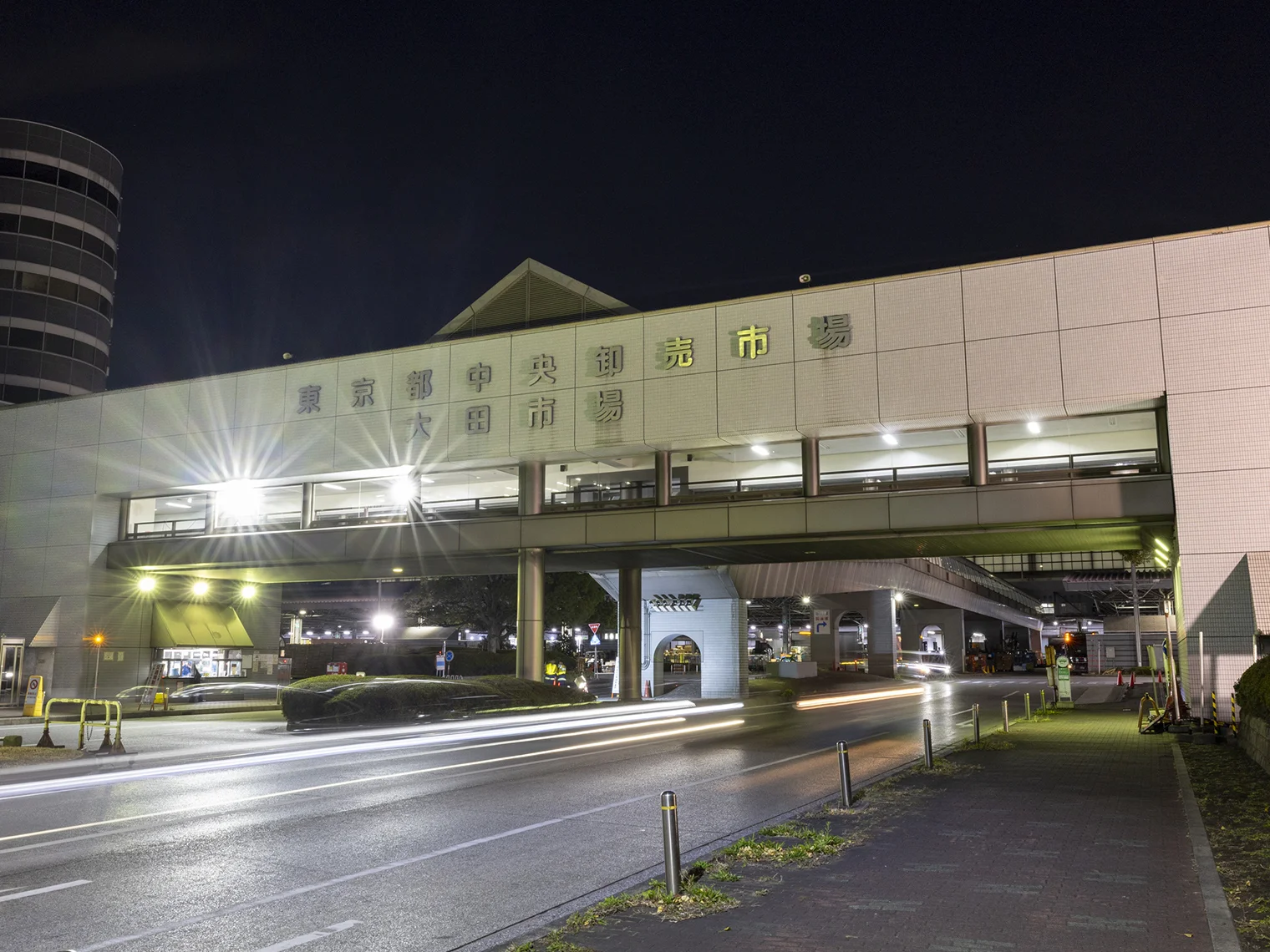
After creating the VSM and conducting interviews on-site, Miki Fukami of the FVC Business Development Division continues, that "utilizing QR codes" was the optimal solution in the development of the Smart Food Supply Chain Platform.
”Many producers and distributors are not familiar with digital technology. In such a situation, we pondered over what kind of system would be necessary to achieve centralized management of information digitally. Considering this, QR codes emerged as a solution that allows one-touch access to necessary information, making it easily adaptable for people on-site without requiring a complex flow." (Fukami)
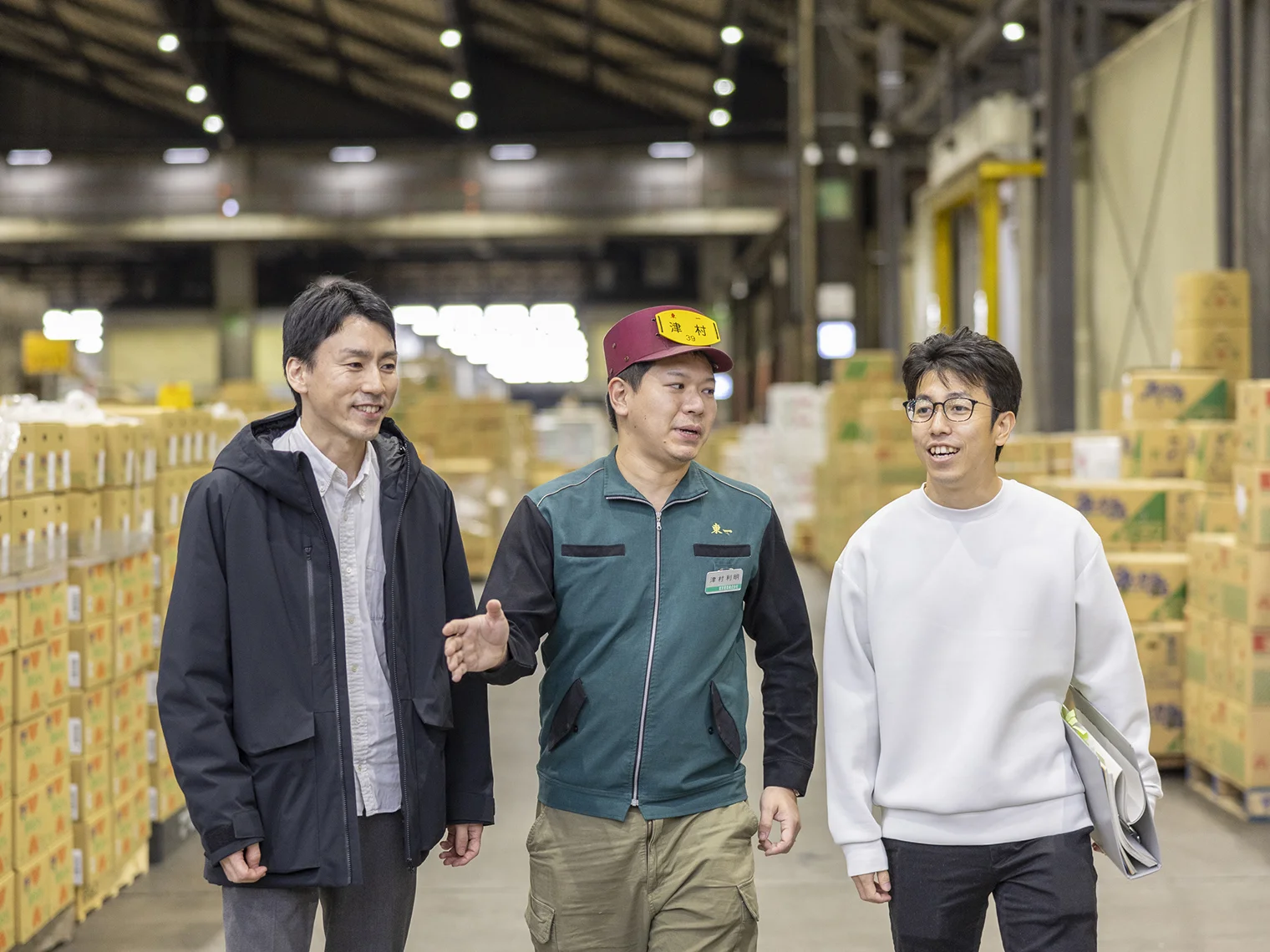
Creating Value in Food Safety, Security, and Stable Supply
The Smart Food Supply Chain Platform, developed through analyzing the challenges experienced on-site, raises the question of what kind of impact its implementation will bring. Aiko Nozue of the FVC Business Development Division, who is working on constructing the Smart Food Supply Chain Platform, says, "I believe it can bring about positive changes for many businesses involved in the food supply chain."

Specifically, the Smart Food Supply Chain Platform is believed to create value in three key areas: efficiency in the supply chain, management of food safety and security, and reduction of food loss through demand-supply adjustment.
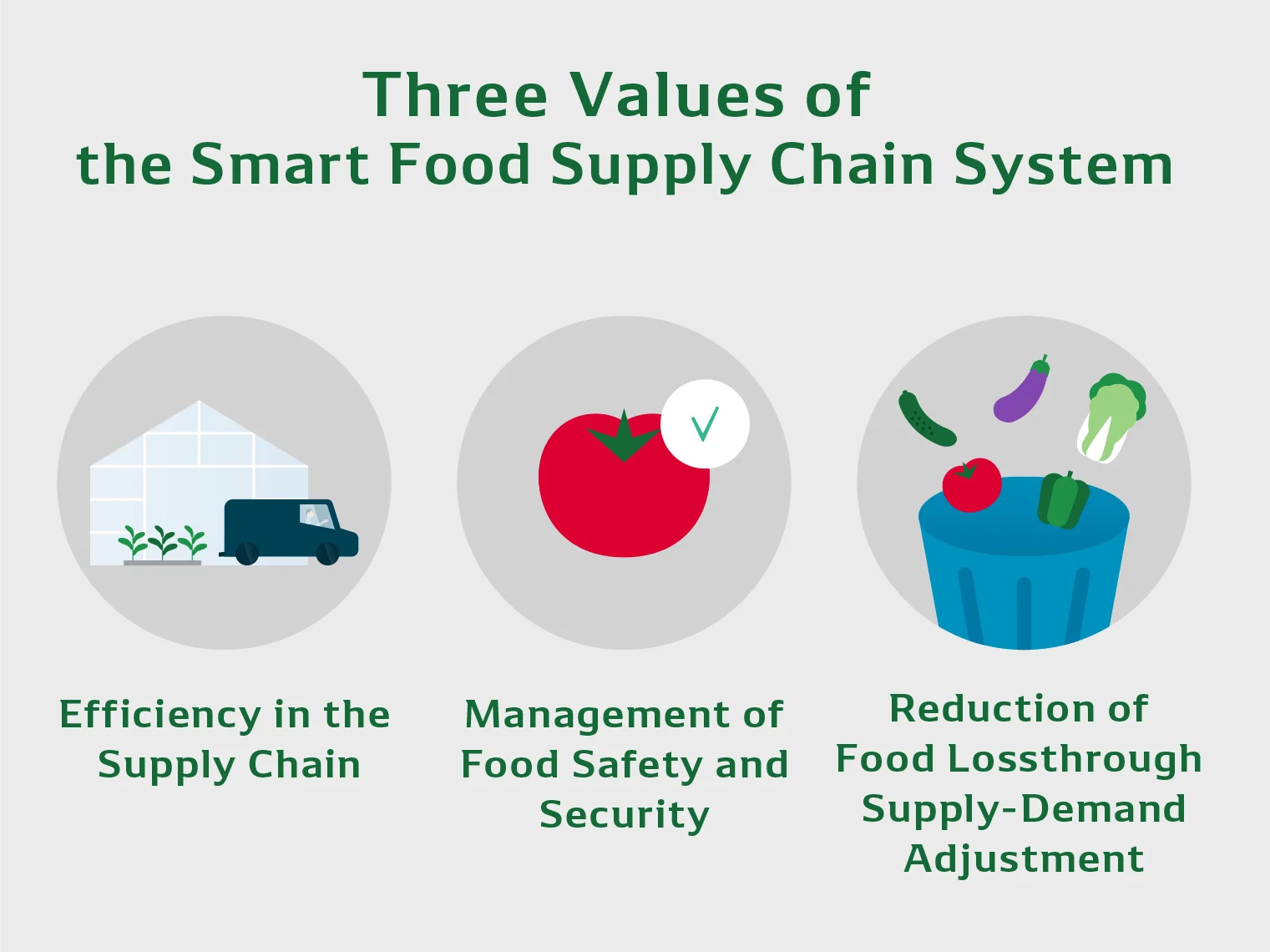
1. Efficiency in the Supply Chain
The first area is efficiency in the supply chain. In markets, a significant issue has arisen due to trucks from producers arriving simultaneously, leading to congestion and delays in unloading. Additionally, a gradual increase in instances where goods cannot be delivered to retailers such as supermarkets due to labor shortages is becoming apparent. To address these problems, "By connecting producers to markets with data and supporting them with a system, we can reduce the time trucks spend in congestion. We can also alleviate labor shortages by making inspection and inventory management at markets and warehouses more efficient. This should lead to a stable food supply." Nozue states.
"When considering the supply chain field, the impact of weather and other factors often leads to unexpected tasks, trucks not arriving as scheduled resulting in long waiting times for unloading, and the complexity of workflows making digitization difficult, with paper-based tasks being predominant. This situation places a heavy burden on the people in the field. In response, by implementing improvements (Kaizen) in each process based on the Toyota Production System (TPS) principles, and being able to predict weather and traffic information, as well as accurate arrival times, we believe it will be possible to work more systematically. This could significantly reduce the heavy burden on the people in the field." (Nozue)
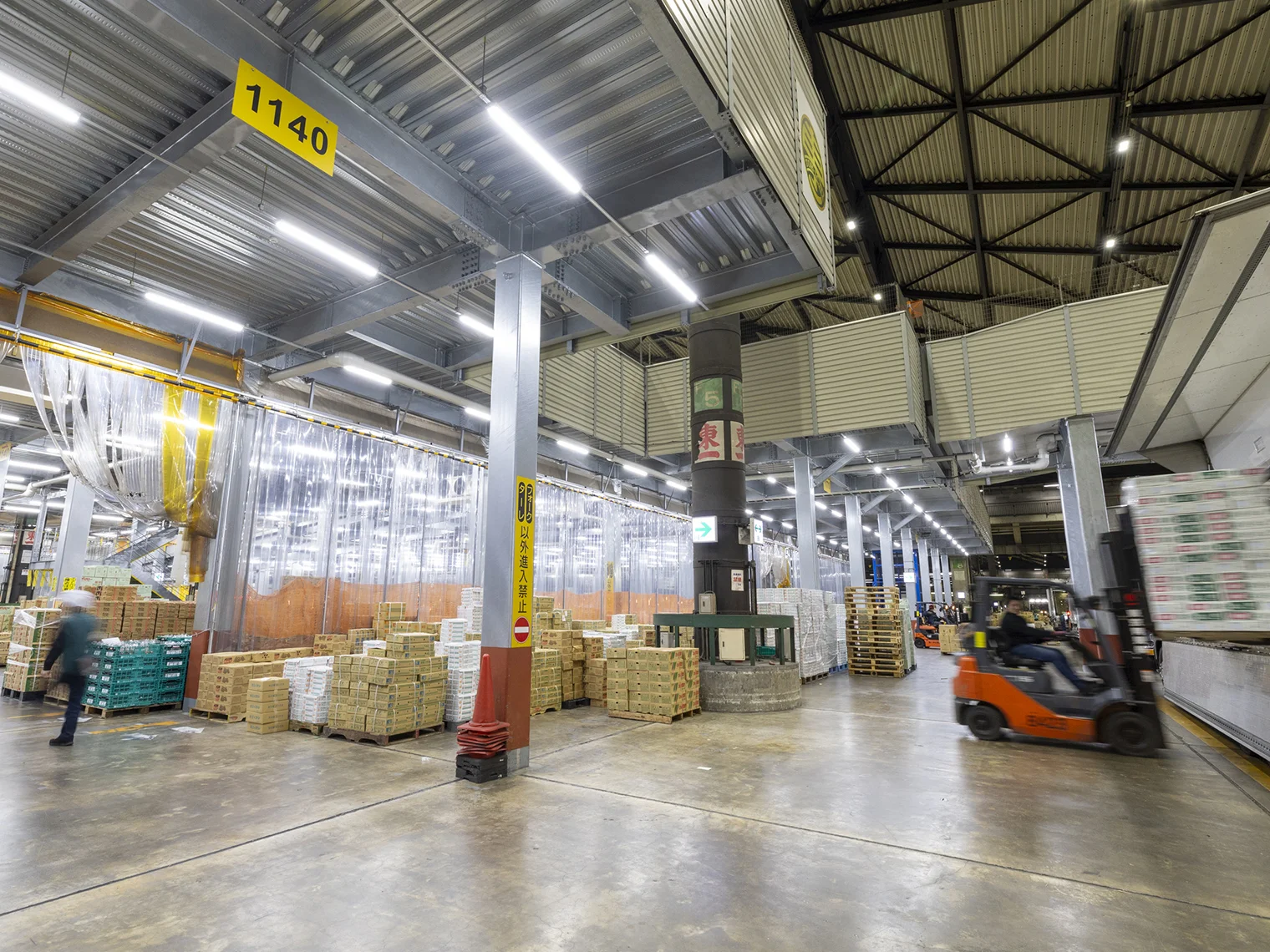
2. Management of Food Safety and Security
The second point is the management of food safety and security, Nozue continues.
"We believe that supply chain management through QR codes and data not only benefits operators involved in the supply chain but also contributes to realizing a safe and secure diet for consumers. By enabling consumers to check the origin, additives, allergy information, and freshness of food just by scanning a QR code, we aim to improve food safety and quality." (Nozue)
3. Reduction of Food Loss through Demand-Supply Adjustment
The third point is the reduction of food loss through demand-supply adjustment. Nozue suggests reducing food loss is possible by changing transportation lots into smaller and more frequent ones based on demand forecasting through data analysis.
"In the existing food supply chain process, predicting food demand is difficult due to paper-based information transmission and information siloing, resulting in significant unsold inventory at retail stores and cases where wholesalers and farmers have to dispose of food. However, by analyzing the demand through this system and transmitting that information to each operator in real-time, we should be able to assist in inventory management to minimize waste." (Nozue)
Enriching the Lives of Everyone Involved in Food Supply Chain
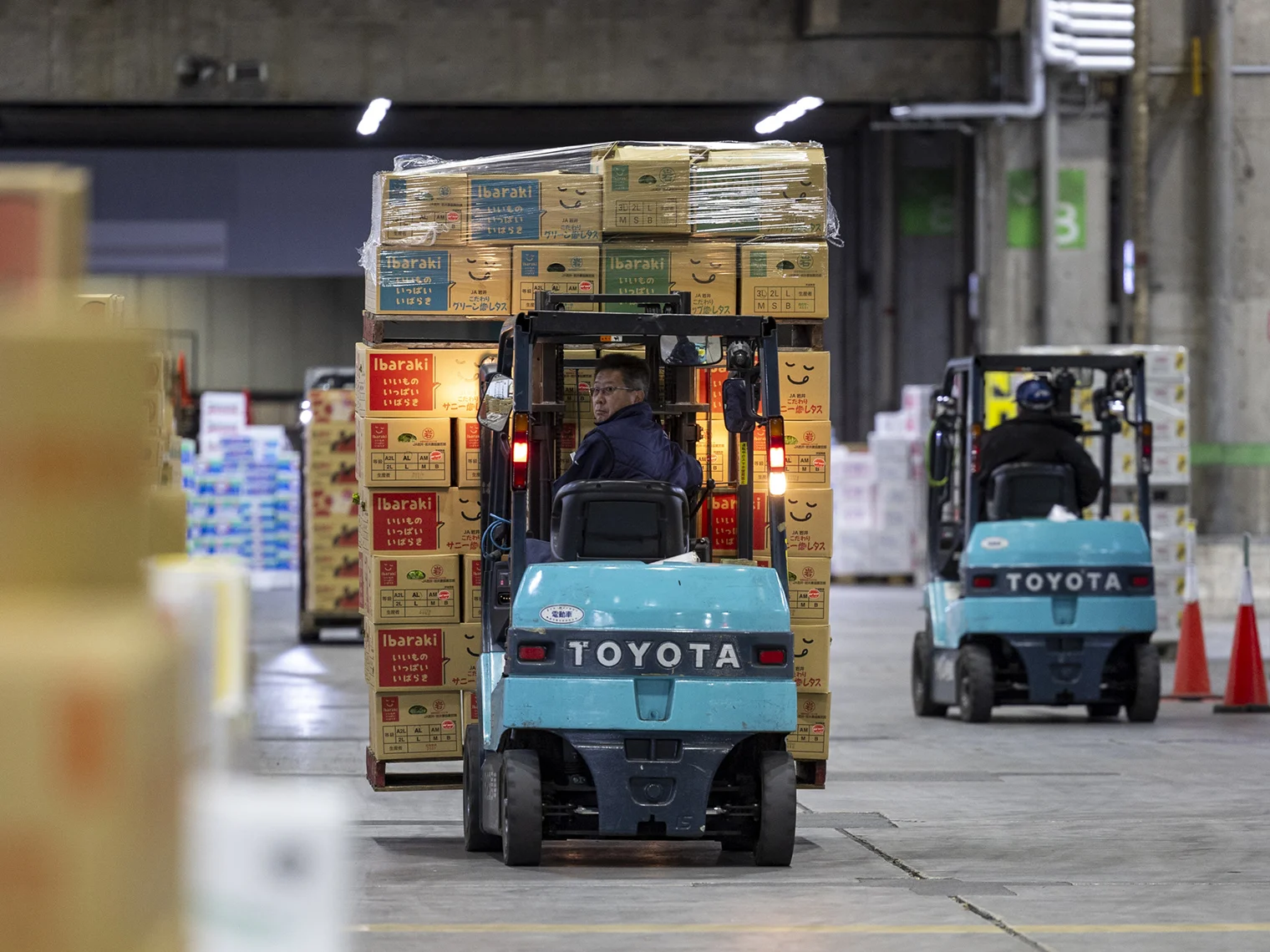
Currently, we are advancing the pilot experiments for the Smart Food Supply ChainPlatform, with plans to start system implementation from the 2024 fiscal year at major domestic wholesale markets and key production area collectives such as JA (Japan Agricultural Cooperatives). Furthermore, future developments will involve leveraging the information acquired through the system for the optimization of the entire logistics process and exploring integration with hardware that combines autonomous and self-driving technology.
"It's important not to forget the respect for the people involved in the food supply chain industry during these developments, to continually provide value that exceeds their expectations, and to transform the industry into something more sustainable," says Okumura.
"We've learned that many people in the food supply chain industry take pride in their work and are committed to supporting the future of food. That's why we hope to quickly design systems that support these individuals. Moreover, we aim to create an environment where people of younger and older generations want to be involved in the supply chain for the future of the industry. For this, a transformation in the food supply chain through smartification is necessary." (Okumura)
Nozue also expresses her anticipation for a future with the implemented Smart Food Supply Chain Platform:
"I envision a future where crops by farmers are delivered to consumers without waste, in high quality. By minimizing unreasonableness, waste, and inconsistency in logistics, we aim to make the industry more sustainable. Through the implementation of the Smart Food Supply Chain Platform, we want to enrich the lives of all people involved in the food supply chain. To achieve this, we will continue to value firsthand insights, collaborate with people in the industry to explore the optimal form of the system, and challenge ourselves to implement it." (Nozue)
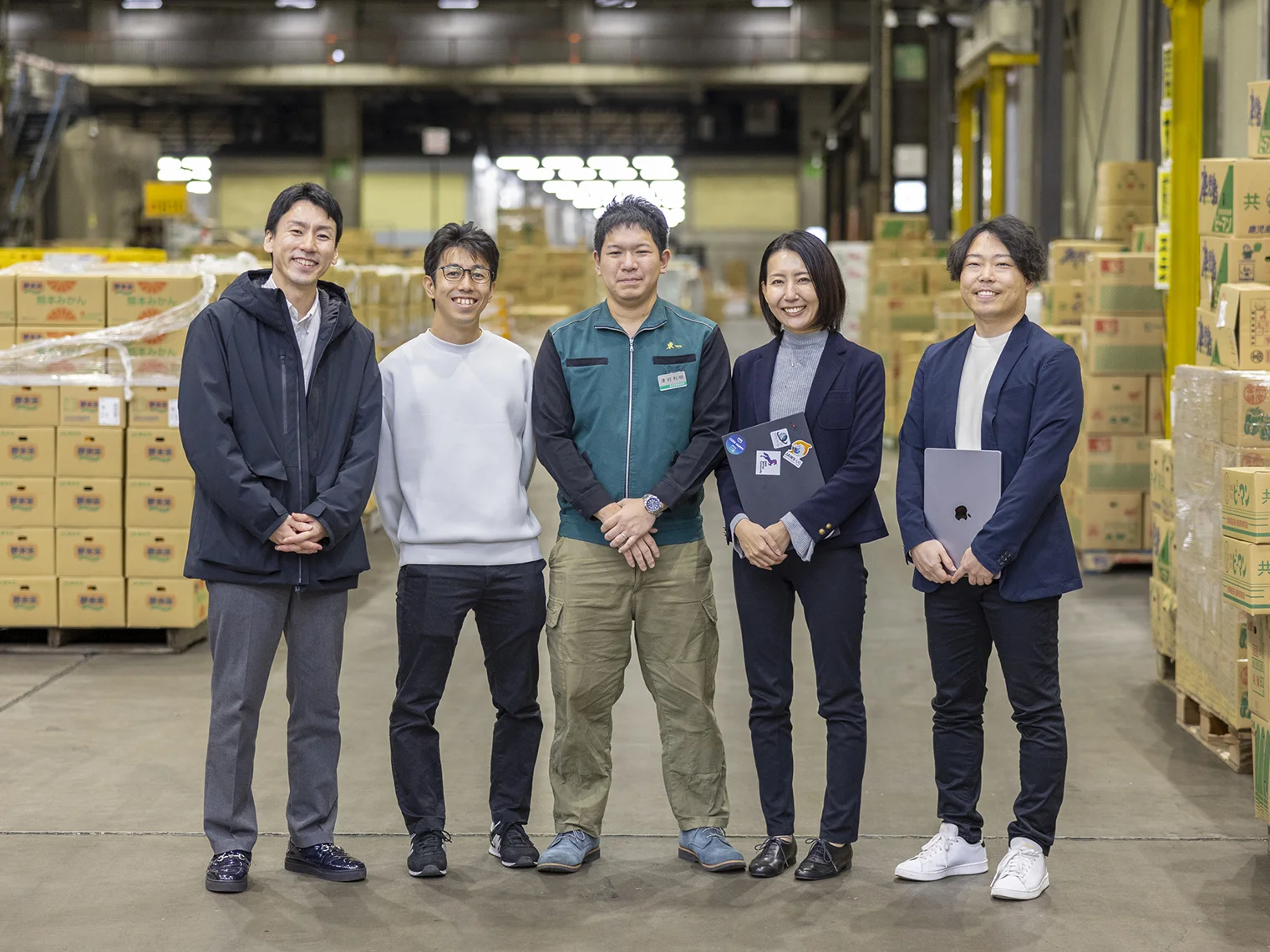
COMMENT
Changing your "Can'ts" into "Cans"
Where Knowledge and People Gather.


